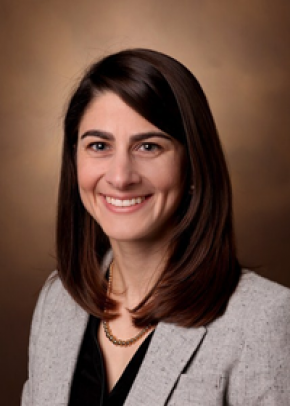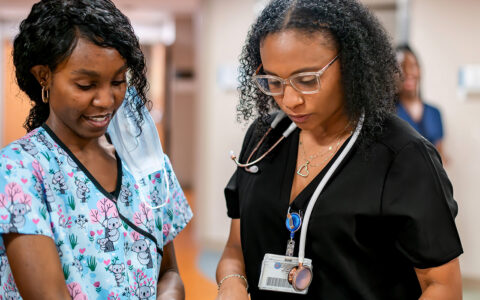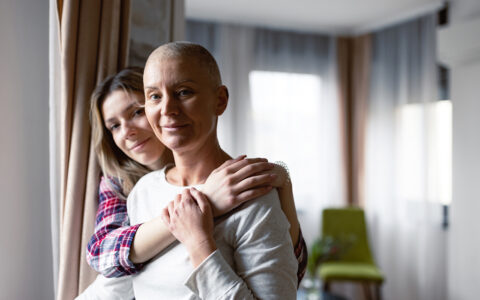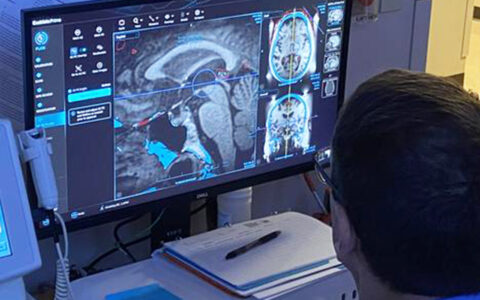COVID-19 has brought varying challenges to geriatrics fellows and their educators, from having to shift focus to full-time clinical care to being consigned to “stay at home” orders. A common denominator has been disruption in the route from fellowship to practice.
GERIAtrics Fellows Learning Online and Together (GERI-A-FLOAT) was launched in March 2020 to help connect and train geriatrics fellows during the pandemic’s upheavals. Maria (Mariu) Carlo Duggan, M.D., director of the Geriatric Medicine Fellowship Program at Vanderbilt University Medical Center, was a key developer of the GERI-A-FLOAT concept.
“Only 150-200 people go into geriatric medicine each year in the U.S., and many programs have only 1-2 fellows, so at any time a fellow may be exposed to only a handful of faculty and a few other fellows at best. Now, connecting with peers has become even more important,” Duggan said. “GERI-A-FLOAT refers to our mission of staying afloat during the COVID-19 storm.”
“GERI-A-FLOAT refers to our mission of staying afloat during the COVID-19 storm.”
Over the spring, GERI-A-FLOAT rapidly recruited 14 programs across the country and hosted 15 one-hour educational Zoom sessions presented by faculty and fellows.
“In three months, we were able to build connections geographically all across the country and have this large peer network,” Duggan said. The program’s success led to a research study in the Journal of the American Geriatrics Society and plans to continue programming this fall.
Virtual Collegiality
Responding to a tweet from Duggan soliciting help, Anna Goroncy, M.D., of the University of Cincinnati and Ryan Chippendale, M.D., of Boston University joined in leading the program. The group identified training topics ranging from COVID-19’s impact in senior facilities, delirium and polypharmacy to medical writing and ethics. Fellows who prepared poster or oral presentations for the canceled American Geriatrics Society scientific meeting also had the opportunity to present.
The leaders gathered participant feedback after each session to guide the format and future topics. Sessions were highly rated, with 100 percent of respondents saying they intended to implement practice or other professional changes based on the content. Moreover, they also shared that the program’s didactic benefits were equaled by the value of connecting as individuals at a difficult time.
“Breakout sessions were really popular. The more interactive the sessions are, the more fellows are able to get to know each other and the faculty, and the more they get out of it,” Duggan said.
An Enduring Change
This summer, Duggan extended an open invitation to geriatrics program directors to join the leadership team. “We now have roughly 20 geriatric educators who are part of our leadership team and can help with brainstorming sessions, coming up with speakers, and formats, and really helping us make every session better,” she said.
Duggan expects that GERI-A-FLOAT and similar programs will only grow as Zoom meetings bring informal and immediate sharing opportunities outside the traditional conference and publishing formats. “It’s exciting that our program participants will leave their fellowship with a large network of geriatrician colleagues,” she said.
“It’s exciting that our program participants will leave their fellowship with a large network of geriatrician colleagues.”
The team kicked off the first fall session, “Finding Your Inner Joyous Geriatrician,” led by Colleen Christmas, M.D. of Johns Hopkins Medicine, to a group of 30 participants. All sessions are recorded for fellows who cannot attend. Duggan says the group is at work planning a number of forthcoming sessions, including several on health equity.





